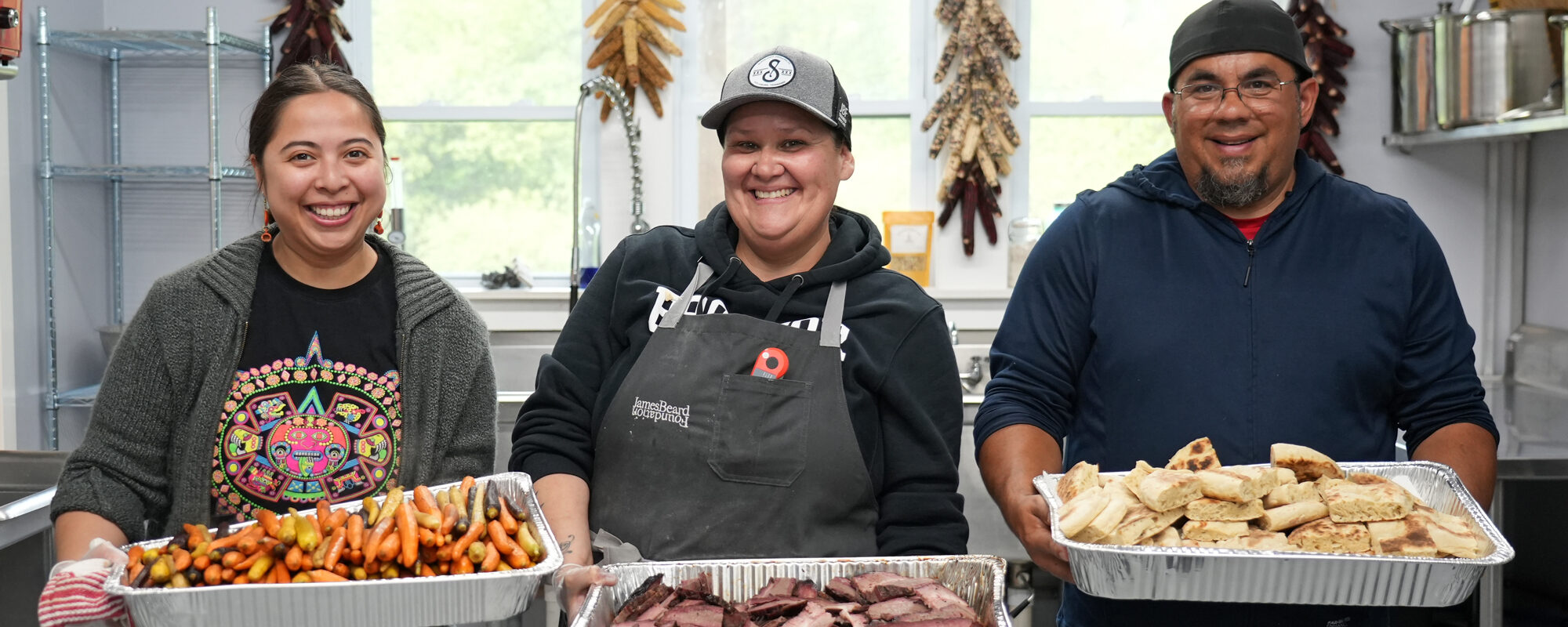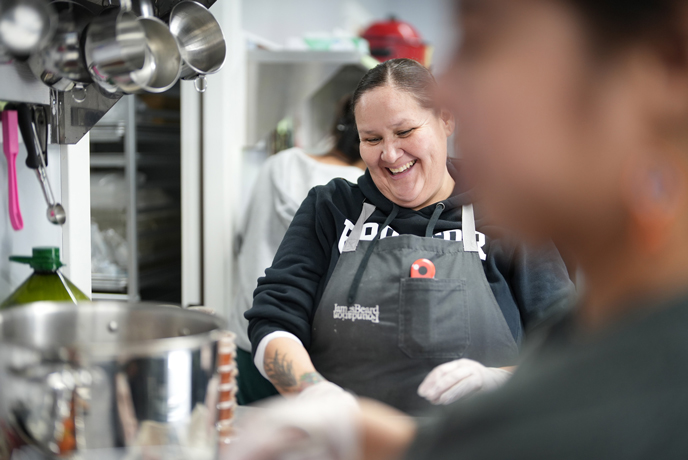The farm hosted a maple camp in March to make syrup from sap and held a field day in mid-May to plant 100 raised bed gardens with traditional food crops, herbs and flowers for the pollinators.
Inside the Ukwakhwa kitchen, there’s a “trading post,” with shelves lined with jars of traditional foods. There are bags of toasted corn mush flour, and beans with names like Kahnawake pole beans, Oneida White Kidney beans, Burnt House Village pole beans and bear beans, mottled black on purple, with a meaty taste and texture. Other shelves hold the products of their Anishinabe neighbors to the north: maple sugar and wild rice. Becky Webster says it truly is a “trading” post they don’t accept money and people need to trade items, so the Minnesota rice arrived in trade for the Oneida’s dehydrated Tuscarora white corn kernels.
“We only trade in barter, it’s hard to put a dollar amount on our foods because they are literally written into our creation story,” Steve Webster says. He’ll ask what people can offer in trade.
“Sometime people will say, ‘I have nothing of value,’ and that’s disheartening to hear,’’ he adds. “We ask, ‘What are you good at? Can you bring us chili and sandwiches when we’re out? Can you help us with hand harvesting and hand weeding? That way they can be a part of it.”
Ukwakhwa represents a life change for the Websters; Steve quit a job as a tribal administrative assistant and Becky quit her job as a tribal attorney. They built all the buildings on the farm, including the kitchen and trading post, and homes for themselves and Becky’s mother. They homeschooled their children, and when daughters Grace and Amelia were teenagers, they required them to research and operate a small business.
They came up with the idea of making and selling breakfast burritos. Steve Webster said the project involved logistics, time management, marketing, applying for vendor licenses and working with commercial kitchens to book time.
The girls started making 40 a week, and by the time the pandemic hit, they were selling 250 to 300 a week.
“We couldn’t make enough,’’ he says. “We were getting chased down by people wanting them when we were out on our delivery routes.”
The girls’ project showed Webster that there was a hunger for healthier food on the reservation, and that’s a hunger they are attempting to feed with Ukwakhwa.
“We really want to bring these foods to the forefront of our people,’’ he says.
Banner photo: Giselle Oliva-Metoxen, Ukwakhwa; Chef Elena Terry; Steve Webster, Ukwakhwa
Photos by Jim Moy



